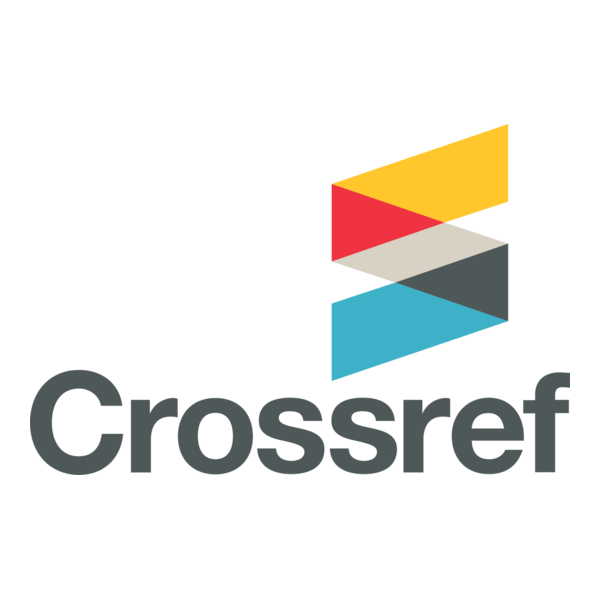Effectiveness and Effects of Distance Learning During the COVID-19 Pandemic through the Eyes of Custodians of Children in Slovenia
DOI:
https://doi.org/10.37886/ip.2023.010Keywords:
distance learning, pedagogical process, working from home, Covid-19, closure of schools and kindergartens, custodianAbstract
Background and Originality: The basic purpose of the research is to find out what was the assessment of the surveyed custodians and their satisfaction by distance learning course and the possibility of coordinating work obligations, home obligations and the participation of surveyed custodians on distance learning. As well our goal was to determine whether the two assessments differ according to some selected factors. The research was carried out during the course of the unique situation of the systemic closure of educational institutions, which appeared in that extent and in such a way for the first time. At the time of conducting the research and preparing the article, we had not find any research that would address stated research problem at the same time and from perspective as effect of custodians participation in the implementation of the pedagogical process.
Method: The research was carried out during two longer waves of school closures in Slovenia and within implementation of distance learning by conducting an online survey of child’s custodians whose attended distance learning. The final form of the questionnaire was coordinated by 2 human research representatives and 2 teaching profession representatives with more than 10 years of experience in that field. In the analysis, we used the methods of univariate statistical analysis and descriptive statistics (frequency distributions, mean values, asymmetry, flattening) and some methods of bivariate statistical analysis (t-test, Pearson correlation coefficient).
Results: Distance learning course had a better assessment by respondents as well/or the possibilities for coordinating obligations with other obligations, especially if the respondent/custodian is not the one transferred to of carrying out the pedagogical process (explaining the material, explaining what needs to be done with the task set, help with the production etc.) and if there are no simultaneous burdens on the custodians with home obligations and help in pedagogical process. It is also important that the teacher/professor is proactive and requests feedback from the children, if the one who provides an adequate material explanation and ensures that the pedagogical process takes place in a way that puts as less additional burden possible on the custodians.
Society: The research represents important contribution within the field of setting the baseline for possible future implementation of distance learning as well as studying the effect on custodians by overwhelming them and also from perspective of overwhelming them in their work environment.
Limitations / further research: As limitation, we would highlight the characteristic of the realized sample, which is not random and which limits the possibility of generalization, and the fact that timeline of implementation and the moment we had wanted to cover in conducting the research did not allow for a more complex way of testing the questionnaire. There are many possibilities for further research. It would make sense to repeat the research and ask the custodians to take into account the time distance until the implementation of distance learning during the closure of educational institutions during the Covid-19 epidemic. It would also be useful to search out to what extent, which areas, age groups and whether distance learning or any of its segments is currently carried out even after the society re-open.
References
A. Christakis, D., van Cleve, W., & F. J. Zimmerman, (2020). Estimation of US Children’s Educational Attainment and Years of Life Lost Associated With Primary School Closures During the Coronavirus Disease 2019 Pandemic. Jama Network Open, 3(11), e2028786. doi:10.1001/jamanetworkopen.2020.28786
Atesci, K., Bhagwatwar, A., Deo, T., Desouza, K. C., & Baloh, P. (2010). Business process outsourcing: A case study of Satyam Computers. International Journal of Information Management, 30(3), 277–282. doi: 10.1016/j.ijinfomgt.2010.01.009
Thorell, B. L., Skoglund, C., Gimenez de la Pena, A., Baeyenes, D., B. M. Fuermaier, A., J. Groom, M., & Christiansen, H. (2021). Parental experiences of homeschooling during the COVID 19 pandemic: diferences between seven European countries and between children with and without mental health conditions. Eur Child Adolesc Psychiatry 31, 649-661. Pridobljeno na https://link.springer.com/article/10.1007/s00787-020-01706-1
Bajec, N. (2019, april 10). Otroci in mobilni telefoni: S prednostmi prihajajo tudi nevarnosti. Računalniške novice. Pridobljeno na https://racunalniske-novice.com/otroci-na-nevarni-strani-pametnega-telefona/.
Brown, D., & Wilson, S. (2005). The Black Book of Outsourcing: How to Manage the Changes, Challenges, and Opportunities. Hoboken: John Wiley & Sons.
Bubb, S. & Jones, M.A. (2020). Learning from the COVID-19 home-schooling experience: Listening to pupils, parents/carers and teachers. Improving Schools, 23(3), 209-222. Pridobljeno na https://journals.sagepub.com/doi/epub/10.1177/1365480220958797
Calear, L. A., McCallum, S., R. Morse, A., Banfield, M., Gulliver, A., Cherbuin,… J. Batterham, P. 2022. Public Health 22:119. Pridobljeno na https://link.springer.com/article/10.1186/s12889-022-12532-2
Camacho-Zuniga, C., Pego, L., Escamilla, & J., Hosseini, S. (2021). The impact of the COVID-19 pandemic on students’ feelings at high school, undergraduate, and postgraduate levels. Heliyon, 7(3):e06465. Pridobljeno na https://www.sciencedirect.com/science/article/pii/S2405844021005703
Chaturvedi, K., Vishwakarma, K. D., & Singh, N. (2021). COVID-19 and its impact on education, social life and mental health of students: A survey. Children and Youth Services Review 121 (2021) 105866.. Pridobljeno na https://www.sciencedirect.com/science/article/pii/S019074092032288X
Chung, H., Birkett, H., Forbes, S., & Seo, H. (2020). Working From Home And The Division Of Housework And Childcare Among Dual Earner Couples During The Pandemic In The Uk. SocArXiv, Splet. Pridobljeno na https://osf.io/preprints/socarxiv/4esf7/
Croatian Dejan Nemcic The Best Geography Teacher In The World. (b. d.). Pridobljeno na https://www.total-croatia-news.com/made-in-croatia/47609-dejan-nemcic
doi: 10.1056/NEJMms2024920
Douglas, M., V. Katikireddi, S., Taulbut, M., & McKee, M. (2020). Mitigating the wider health effects of covid-19 pandemic response. BMJ 2020;369:M1557. Pridobljeno na https://www.bmj.com/content/369/bmj.m1557.abstract
E. Goldberg, A., McCormick, N., & Virgnia, H. (2020). Parenting in a Pandemic: Work–Family Arrangements, Well-Being, and Intimate Relationships Among Adoptive Parents. Family Relations 70(1), 7-25. doi:10.1111/fare.12528
Hoffmann, S. (2003). America Goes Backward. The New York Review of Books, 50(10). Pridobljeno na http://www.nybooks.com/articles/16350
Imran, N., Zeshan, M., & Pervaiz, Z. (2020). Mental health considerations for children & adolescents in COVID-19 Pandemic. Pak J Med Sci. 2020;36. Pridobljeno na https://www.ncbi.nlm.nih.gov/pmc/articles/PMC7306970/
J. Lee, S., P. Ward, K., D. Chang, O., & M. Downing, K. (2021). Parenting activities and the transition to home-based education during the COVID-19 pandemic☆. Children and Youth Services Review, 122, 105585. Pridobljeno na https://www.sciencedirect.com/science/article/pii/S0190740920320089
Petts, J. R., Carlson, L. D., & Repin,R. J. (2020). A gendered pandemic: Childcare, homeschooling, and parents' employment during COVID‐19. Gender Work Organ. 28(S2), 515-534. Pridobljeno na https://onlinelibrary.wiley.com/doi/epdf/10.1111/gwao.12614
Križaj, M., Pristavec Đogić, M., & Eror, A. (2021). Šolanje v času COVID-19: Primerjalni pregled (PP). Raziskovalno-dokumentacijski sektor Državnega zbora. Pridobljeno na https://fotogalerija.dz-rs.si/datoteke/Publikacije/Zborniki_RN/2021/Solanje_v_casu_COVID-19.pdf
Laranjeira, C., Anjos Dixe, M., Valentim, O., Charepe, Z., & Querido, A. (2022). Mental Health and Psychological Impact during COVID-19 Pandemic: An Online Survey of Portuguese Higher Education Students. International Journal of Environmental Research and Public Health 19,337, 1-15. Pridobljeno na https://www.mdpi.com/1660-4601/19/1/337
Levinson, M., Phil, D., Cevik, M., M.D., & Lipsitch, M. (2020). Reopening Primary Schools during the Pandemic. New England Journal of Medicine, 383, 10, 981-985.
Logaj, V, (ur.). (2021). Šolsko leto 2021/22 v Republiki Sloveniji v razmerah, povezanih s covidom-19: Modeli in priporočila. Ministrstvo za izobraževanje, znanost in šport, Zavod Republike Slovenije za šolstvo.
M. Reimers, F (2022). Primary and Secondary Education During Covid-19 Disruptions to Educational Opportunity During a Pandemic. OAPEN Foundation
Nicola, M., Alsafi, Z., Sohrabi, C., Kerwan, A., Al-Jabir, A., Iosifidis, ... Agha, R. (2020). The socio-economic implications of the coronavirus pandemic (COVID-19): A review. International Journal of Surgery, 78, 185-193. Pridobljeno na: https://www.sciencedirect.com/science/article/pii/S1743919120303162?via%3Dihub
Onyema, E. M., Eucheria, N. C., Obafemi, A. F., Sen, S., Antonye G, F., Sharma, A., & Alsayed, A. O.). (2020). Impact of Coronavirus Pandemic on Education. Journal of Education and Practice, 11(13), 108-121. Pridobljeno na https://pdfs.semanticscholar.org/25a7/a1a86bc84a0cae928b005dee64f3c8c8aeb3.pdf
Patrick W., S., Henkhaus E., L., Zickafoose S., J., Lovell, K., Halvorson, A., Loch,… M., Davis M., (2020). Well-being of Parents and Children During the COVID-19 Pandemic: A National Survey. American Academy of Pediatrics, 146(4), 1-8. Pridobljeno na https://publications.aap.org/pediatrics/article/146/4/e2020016824/79686/Well-being-of-Parents-and-Children-During-the
Real Academia Española. (2001). Diccionario de la lengua española [Slovar španskega jezika] (22. izd.). Madrid, Španija.
Rupnik V., T., Slivar, B., Kustec, S., & Logaj, V. (2020). Izobraževanje na daljavo v času epidemije Covid-19 v Sloveniji. Zavod RS za šolstvo. Pridobljeno na https://www.zrss.si/novice/izobrazevanje-na-daljavo-v-casu-epidemije-covid-19-v-sloveniji/
Sarkadi, B., Vintila, M, Ph., D., Department of Psychology, & West University of Timisoara. (2021). Home education impact on family life during the covid -19 pandemic. Journal Plus Education, 29(2),235-255. Pridobljeno na https://www.uav.ro/jour/index.php/jpe/article/view/1664/1687
Schmidt, A., C. Kramer, A., Brose, A., Schmiedek, F., & B. Neubauer, A. (2020). Homeschooling and Affective Well-Being of Parents and Children During the COVID-19 Pandemic: A Daily Diary Study. OSFHOME. Pridobljeno na https://osf.io/ugkj2/
SURS. (2023). Število posameznikov po letu, namenu uporabe mobilnega telefona, starostnemu razredu in spolu. Pridobljeno na https://pxweb.stat.si/SiStatData/pxweb/sl/Data/Data/2979505S.px/table/tableViewLayout2/.
Thorell, L. B., Skoglund, C. B., de la Peña, A. G., Baeyens, D., Fuermaier, A., Ženin, M., ... Christiansen, H.). 2020. Psychosocial effects of homeschooling during the COVID-19 pandemic: Differences between seven European countries and between children with and without mental health conditions. PsyArXiv. Pridobljeno na https://psyarxiv.com/68pfx/
Weaver, J. L. & Swank, J. M. (2020). Parents’ Lived Experiences With the COVID-19 Pandemic. The Family Journal, 29(2), 136-142.. Pridobljeno na https://journals.sagepub.com/doi/epub/10.1177/1066480720969194
Yildirim, T. M. & Eslen-Ziya, H. (2020). The differential impact of COVID-19 on the work conditions of women and men academics during the lockdown. Gender Work Organ, 28(S1), 234-249. doi: 10.1111/gwao.12529
Additional Files
Published
How to Cite
Issue
Section
License
Copyright (c) 2023 Marija Paladin, Mateja Klarić

This work is licensed under a Creative Commons Attribution-ShareAlike 4.0 International License.
![]()








